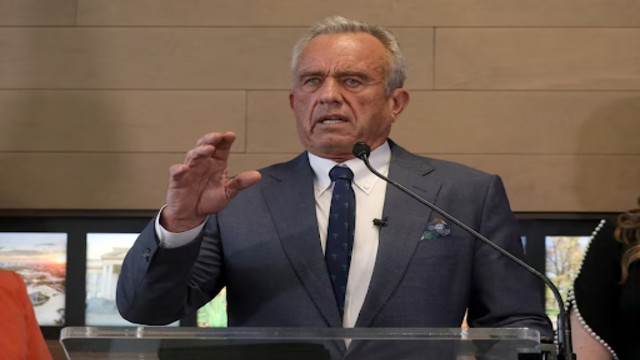
U.S. Health Secretary Robert F. Kennedy Jr. speaks during a press conference while visiting the Osher Center for Integrative Health at the University of Utah in Salt Lake City, Utah, U.S. April 7, 2025 via REUTERS
The United States is grappling with a major measles outbreak, but experts say poor communication and mixed messaging about vaccines are making the situation worse. Pediatricians and infectious disease specialists are calling for stronger, science-based advocacy from federal health officials to combat misinformation and protect the public.
The Measles Outbreak Expands Across Multiple States
Since January, more than 600 measles cases have been reported in the U.S., with Texas alone accounting for 505 infections. Neighboring states like New Mexico, Oklahoma, and Kansas have reported over 90 combined cases. Tragically, two children in Texas have died, and a possible adult death in New Mexico is under investigation.
Health professionals warn that these numbers could be just the tip of the iceberg. Dr. Paul Offit, director of the Vaccine Education Center at the Children's Hospital of Philadelphia, believes the Texas outbreak could involve thousands of unconfirmed cases.
Weak Federal Messaging Raises Alarm
Unlike past responses to outbreaks, the current messaging from federal officials is being criticized for lacking urgency and clarity. U.S. Health and Human Services Secretary Robert F. Kennedy Jr. has publicly supported the measles vaccine, but has also shared unproven remedies and overstated risks tied to vaccines. This, experts say, has left parents confused.
Dr. Sue Kressly, president of the American Academy of Pediatrics (AAP), emphasized that only consistent, fact-based communication can curb the spread. “That is the number one message we’re trying to put in front of everyone,” she said.
Misinformation Fuels Vaccine Hesitancy
In a troubling trend, U.S. childhood vaccination rates continue to decline. Florida's kindergarten vaccination rate, for instance, dropped to just 81% last year—well below the 95% needed to maintain community protection.
The CDC, the leading U.S. agency for outbreak control, has only issued two official statements on the measles outbreak and is posting weekly updates online. In contrast, during the 2019 outbreak in New York, federal health officials held frequent press briefings and enforced vaccination requirements.
Doctors say they are trying to fill the communication gap themselves. The AAP has released new digital resources, social media content, and a campaign to combat vaccine misinformation.
Dangers of Alternative Treatments
Kennedy recently promoted unproven treatments such as Vitamin A, antibiotics, and inhaled steroids—raising concerns among medical professionals. Dr. Tina Tan of the Infectious Diseases Society of America warned that antibiotics do not work against viral infections like measles, and that steroids could worsen the illness by weakening the immune system.
Vitamin A, while sometimes used under strict medical guidance, can be dangerous in high doses. In Texas, pediatricians have reported liver toxicity in children given excessive amounts of the vitamin.
Vaccine Is the Only Reliable Protection for Measles
Measles remains a highly contagious disease with no specific cure. It typically results in 1–3 deaths per 1,000 cases. The vaccine, however, offers strong protection—93% effective after one dose, and 97% after two.
With only 11 U.S. states meeting the 95% vaccination threshold, doctors are urging immediate action. They also highlight the danger to vulnerable groups. Pregnant women, for example, risk miscarriage or birth defects if infected. Pediatricians now stress that herd immunity no longer exists in many areas.
In the words of Dr. Theresa Horton from Oklahoma: “We no longer have herd immunity. The risk is real—and rising.”















